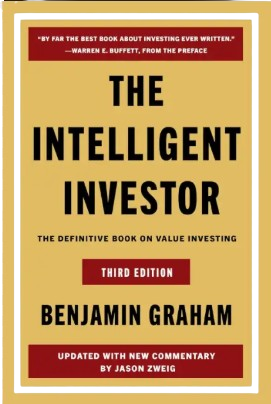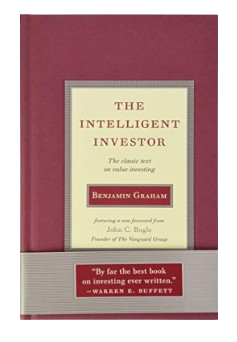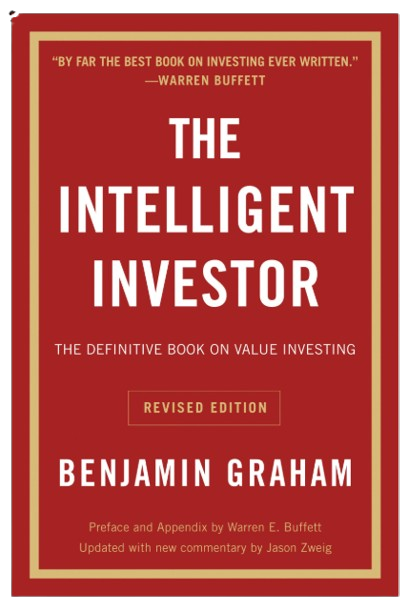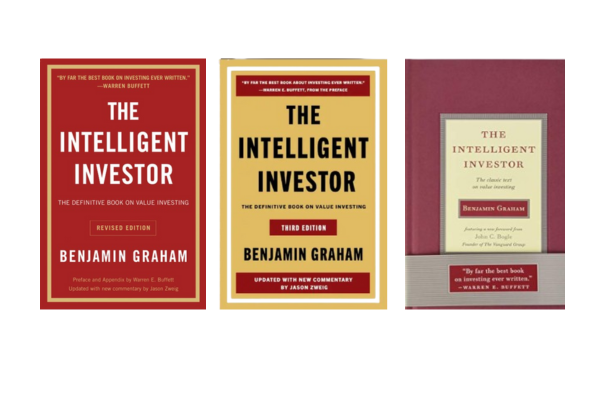The Intelligent Investor book by Benjamin Graham is often hailed as ”the bible of value investing”. First published in 1949, this legendary book has stood the test of time and continues to influence generations of investors, including Warren Buffett. Known for its deep insights into market behavior and investor psychology, the intelligent investor book provides the foundational principles necessary to achieve long-term financial success in the stock market.
In this detailed review, we explore the core concepts, timeless wisdom, and practical takeaways of the intelligent investor book, and how it remains incredibly relevant even in 2025. Whether you’re a beginner or a seasoned investor, understanding the teachings of Benjamin Graham can reshape how you approach investments.
Table of Contents
About the Author: Benjamin Graham
Benjamin Graham, often referred to as the father of value investing, was a renowned economist and professional investor. His principles of investing with a margin of safety and focusing on intrinsic value laid the groundwork for modern investment strategy. The intelligent investor book is his most accessible and widely-read work, written for the everyday investor.
Values | The Intelligent Investor : The Definitive Book on Value Investing (Third Edition) | The Intelligent Investor: The Classic Text on Value Investing | THE INTELLIGENT INVESTOR Latest Fresh Book Edition |
|---|---|---|---|
Preview |  |  |  |
Buy Now |
Why Read The Intelligent Investor Book?
- It focuses on long-term investing over speculation.
- Provides a roadmap for navigating market volatility.
- Introduces key concepts like intrinsic value, margin of safety, and Mr. Market.
- Helps investors avoid emotional decision-making.
Key Concepts in The Intelligent Investor Book
1) Investor vs. Speculator
One of the fundamental distinctions Benjamin Graham makes in The Intelligent Investor is between an investor and a speculator. An investor makes decisions based on thorough analysis, aiming to preserve capital and earn a satisfactory return over time. In contrast, a speculator focuses on price movements and short-term gains, often driven by emotion or market hype. Graham emphasizes that adopting the mindset of a true investor is crucial for long-term success and financial safety.
2) Margin of Safety
The “margin of safety” is perhaps the most influential concept in Graham’s philosophy. It refers to buying a stock at a significant discount to its intrinsic value to reduce the risk of loss. This buffer protects investors from errors in judgment, market volatility, or unforeseen events. Graham believed that conservative investing should always involve a margin of safety to preserve capital and minimize downside risks.
3) Mr. Market
Graham introduces the allegorical figure “Mr. Market” to explain how stock prices can be irrational. Mr. Market is your business partner who offers to buy your shares or sell you his every day, but his mood swings wildly—sometimes overly optimistic, sometimes pessimistic. The intelligent investor uses Mr. Market’s emotional swings to their advantage, buying when prices are undervalued and holding steady when prices are inflated.
4) Intrinsic Value
The concept of intrinsic value is central to value investing. Graham argues that every stock has an underlying worth based on a company’s assets, earnings, dividends, and future growth potential. By calculating this intrinsic value, investors can determine whether a stock is overvalued or undervalued, allowing for more rational investment decisions rather than speculative gambles based on price movements alone.
5) Defensive vs. Enterprising Investors
Graham categorizes investors into two main types: defensive and enterprising. Defensive investors prefer a passive approach, focusing on safety and long-term holdings such as blue-chip stocks or bonds. Enterprising investors, on the other hand, are willing to dedicate more time and effort to uncover undervalued opportunities, often engaging in in-depth analysis and active portfolio management. Graham provides tailored strategies for both types, ensuring that readers can find an investment approach that suits their risk tolerance and commitment level.
Structure of the Book
The intelligent investor book is divided into several parts:
- Introduction and Preface by Benjamin Graham and updated commentary by Jason Zweig.
- General Approach to Investment: Overview of market behavior and investment philosophy.
- Security Analysis: Understanding stocks, bonds, and portfolio allocation.
- Investor Psychology: Controlling emotions like fear and greed.
- Market History and Case Studies: Lessons from past events.
Timeless Lessons from The Intelligent Investor Book
1. Be Rational, Not Emotional
Markets are volatile and full of noise. Rational thinking leads to better decisions.
2. Value Over Price
Don’t be swayed by stock prices alone. Look for true value.
3. Patience Pays Off
Long-term investing rewards the disciplined investor.
4. Risk Management Matters
Always invest with a margin of safety.
5. Know Your Limits
Stick to what you understand. Avoid herd mentality.
Modern Relevance of The Intelligent Investor Book in 2025
Even decades after its publication, the intelligent investor book is highly relevant in today’s digital, algorithm-driven markets. Here’s why:
- Volatility Remains Constant: The emotional nature of markets hasn’t changed.
- Data Abundance Requires Discipline: Easy access to data tempts investors to overtrade.
- Long-Term Wealth Creation Is Still the Goal: Short-term speculation leads to losses for most.
Notable Endorsements and Influence
Warren Buffett has repeatedly praised The Intelligent Investor, calling it “by far the best book on investing ever written.” Many successful investors credit their disciplined approach and value-based strategies to the teachings of this book. Buffett even described reading it at the age of 19 as one of the most important moments in his life.
The book has also influenced academic curriculums, financial advisors, and investment professionals globally. Its balanced approach appeals to beginners and seasoned investors alike.
Key Takeaways from The Intelligent Investor Book
- Understand your risk profile.
- Invest for the long term.
- Don’t chase trends or market noise.
- Focus on value and fundamentals.
- Stay disciplined and avoid emotional trading.
Final Verdict: Is The Intelligent Investor Book Worth Reading?
Absolutely. The intelligent investor book is a must-read for anyone serious about mastering the art and science of investing. With a focus on timeless principles, rational thinking, and financial discipline, this book remains one of the best guides for achieving sustainable success in the stock market.
Whether you’re investing for retirement, building wealth, or just starting out, the lessons from Benjamin Graham can help you become a more intelligent and confident investor.
Frequently Asked Questions (FAQs)
Q1: Is The Intelligent Investor Book worth it?
Yes, The Intelligent Investor Book is worth it for timeless value investing wisdom, risk management insights, and disciplined investment strategies.
Q2: Did Warren Buffett read The Intelligent Investor Book?
Yes, Warren Buffett read The Intelligent Investor Book at age 19 and credits it as the foundation of his investing philosophy.
Q3: Can a beginner read The Intelligent Investor Book?
Yes, a beginner can read The Intelligent Investor Book, but it requires patience and basic financial knowledge to fully understand its insights.





